An abbreviated version of my article on the symposium held at MIT to commemorate Perween Rehman and her legacy was published in The News on Sunday last weekend, titled Commitment personified. Below, the full text with additional links and photos:
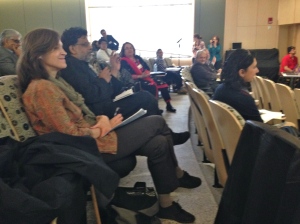
Speakers at a symposium in the Boston area last week, on “The Orangi Pilot Project and Legacy of Architect Perween Rehman” paid tribute to the late architect and OPP director, as “a woman, architect and social activist”. They also discussed parallels between the issues faced by the urban poor in and elsewhere. Hosted by the Aga Khan Program for Islamic Architecture at the prestigious Massachusetts Institute of Technology (MIT), the symposium featured prominent academics from India, Pakistan and the United States.
The event, spearheaded by graduate students Fizzah Sajjad and Hala B. Malik from Lahore, had been in the planning soon after the murder of Perween Rehman in Karachi on March 13, 2013.Academics from India, Pakistan and the United States presented papers and participated in discussions. Prominent among them were Akbar Zaidi, Kamran Ali Asdar, Balakrishnan Rajagopal, James Wescoat, Anita M. Weiss, Laura A. Ring, Anita Spirn (of the pioneering West Philadelphia Landscape Project, which has many parallels with OPP), and Miloon Kothari, former UN Special Rapporteur on the Right to Housing who is currently at MIT.
Ironically, Perween herself had taken a deliberate decision to not attend such events, reflected the prominent architect Arif Hasan, Chairperson of the Orangi Pilot Project (OPP) and Urban Resource Centre (URC), whose keynote speech kicked off the day-and-a-half long event. Perween Rehman, who graduated in 1981 from the Dawood College of Engineering in Karachi, was among the first batch of students he had taught. The following year, fed up with doing projects for the rich, as she put it, she came to work with the legendary Dr Akhtar Hameed Khan at the Orangi Pilot Project that he had launched in 1980.
It was Agha Hasan Abidi of BCCI who had asked Dr Khan, a retired bureaucrat famous for his uplift work at Comilla (in former East Pakistan), to help the people settled in Orangi. Dr Khan said he would not work with any one ethnic group or to do any social work, but agreed to investigate the problems in Orangi. After “roaming around” as Arif Hasan puts it, and talking to the people for several months, Dr Khan became convinced that the area would never become developed unless the people organised themselves and raised the money needed. In 1981, he asked Arif Hasan to develop a sanitation model, and later a housing model. There were psychological, social and economic barriers to be crossed. And there was a need, Arif Hasan suggested to Dr Khan in a note, to hire a young person to head the project and grow with it. However, one after the other, the young men they hired barely lasted beyond a few hours to a week at the job. And one day, Perween serendipitously showed up at Arif Hasan’s office, fed up of doing meaningless projects. She wanted to do something that would actually help people. She had done her homework and asked her former teacher about the various options she had investigated. He suggested that she go meet Dr Khan. She did, and he hired her. Unlike the others before her, she stayed on, “very serious in those early days”.
She learnt on the job, supervising the mapping and surveying of OPP, that students not much younger than herself carried out. This cost a fraction of the amount that an international agency had quoted, said Arif Hasan.
Rehman’s second major learning was to start a research institute. She “learnt by doing, observing and association”. In 1987, she was made director of the research and training institute, much to the resentment of the conservative lobby who considered her as a young “girl” – “but she stuck it out”. In time, she became close to various social organisations and activists, winning over many detractors who became her protectors and friends.
Her third major learning, said Arif Hasan, was through Khuda ki Basti, the housing project that the bureaucrat Tasneem Siddiqui started (see his interview in The News on Sunday on katchi abadis). To Perween Rehman’s credit goes the removal of the old complicated system of registering land and other legalities, and the establishment of a one-window operation open in the evenings that people could avail of.
She also initiated the OPP-RTI (Research and Training Institute), which manages projects like low-cost sanitation, secure housing support, education, water supply, and women’s savings, and training programmes. One of its greatest contributions has been mapping and documenting numerous settlements in Karachi.
Over 70 per cent of katchi abadis in Karachi are now regularised, thanks largely to the advocacy work of Perween Rehman and the OPP. Her greatest achievement, reflected Arif Hasan, was to make OPP “a people’s project”, and to “bring people closer together”. She refused to deal with the ‘big’ bureaucrats, preferring to focus on those working at that ground level. That in itself was a major shift in how advocacy was done. It led to changes in the laws, and changed perceptions towards informal settlements. “Laws are important”, as Arif Hasan put it, pointing out that it took 11 years to frame the Sindh Katchi Abadis Act, which in turn, became part of the Karachi Development Plan.

There is a strong anti-poor bias, not just in Karachi and Pakistan but all over South Asia, and indeed, the world, observed Balakrishnan Rajagopal, Associate Professor of Law and Development and founding Director of the Program on Human Rights and Justice at MIT.
Around the world, the poor are being pushed into smaller settlements, he said in his thought-provoking talk on various kinds of violence, including those that are structural and institutional, weighed against the poor. Transport is geared towards the much-touted vision of the ‘world class city’, rather than connecting the poor. Indeed, slogans like “world class” or “slum-free city” are “dangerous ideologies that sanction violence on the vulnerable at the policy level”. Re-locating people to make room for ‘development projects’ causes an increase in poverty levels as incomes decrease. Children pay a heavy price as their schooling is interrupted. Meanwhile, as literacy levels are rising, people are becoming more aware of their political rights.
Ironically, the more assertive they become, the more conflict is generated — the police tend to be heavy-handed when it comes to dealing with protests by the poor. Another common phenomenon, from Mexico and Brazil to South Asia, is the personal risk taken by those who work with the poor. The violence against defenders of equities, rights and the poor needs to be explicitly recognised, suggested Balakrishnan.
Over-commercialisation and commodification are giving rise to a certain kind of consumerism, and the consolidation of a trans-nationalist capitalist class. Exploitation of natural resources pushes rural dwellers to the cities, where they are forced into slums, making them vulnerable to disease and other issues related to urban poverty. Arif Hasan has suggested that architects and town planners develop a code of ethics and take oath like doctors do, to refuse projects that displace the poor or are environmentally or ecologically unfriendly.
Given the neo-liberal agenda that is being pushed globally, the suggestion is unlikely to receive a sympathetic hearing among his colleagues (“Arif Bhai, hum bazaar mein baiThey haiN,” as one of them put it). Still, it is certainly an idea worth pushing for.
Filed under: Environment, Gender, Health, Pakistan | Tagged: Akhtar Hameed Khan, Arif Hasan, Comilla, OPP, Perween Rehman |


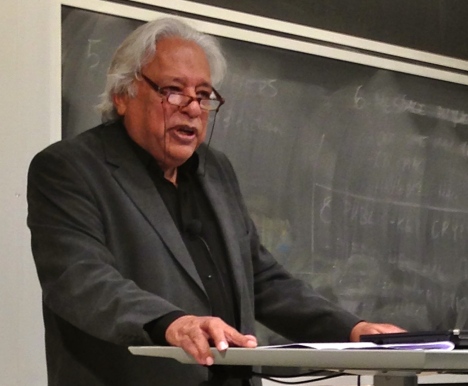
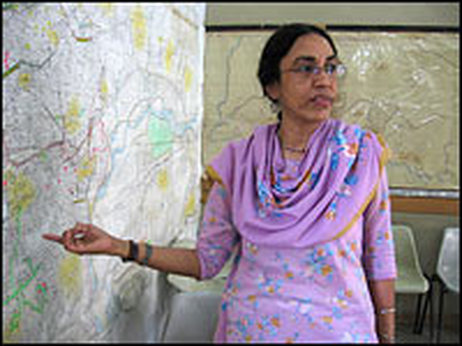
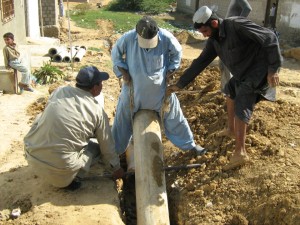
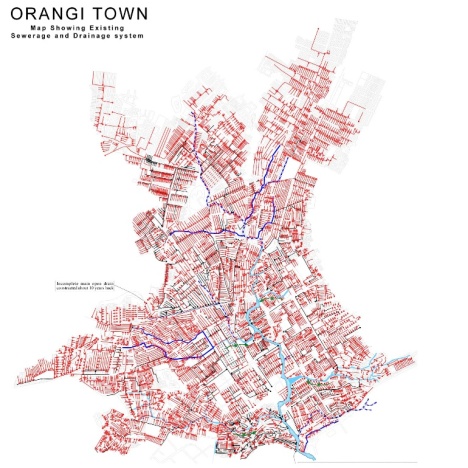
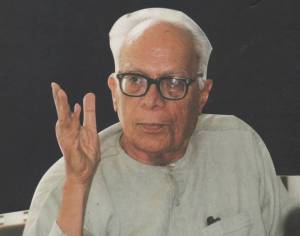
Leave a comment